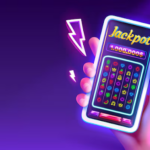-
Table of Contents
- The Layladeline Leak: A Deep Dive into the Controversial Incident
- The Layladeline Leak: Understanding the Incident
- The Implications of the Layladeline Leak
- The Importance of Privacy in the Digital Age
- Lessons Learned from the Layladeline Leak
- Q&A
- 1. How can individuals protect their personal information online?
- 2. What are the potential legal consequences of leaking personal information?
- 3. How can organizations ensure the security of personal information?
- 4. What role do social media platforms play in protecting user privacy?
- 5. How can individuals support the protection of privacy rights?
The Layladeline Leak is a recent incident that has sparked widespread debate and controversy. In this article, we will delve into the details of the leak, its implications, and the lessons we can learn from it. Through a comprehensive analysis, we aim to provide valuable insights into the consequences of such leaks and the importance of privacy in the digital age.
The Layladeline Leak: Understanding the Incident
The Layladeline Leak refers to the unauthorized release of personal and private information belonging to Layla Deline, a well-known public figure. The leaked information included sensitive details such as personal messages, photographs, and financial records. The incident gained significant attention due to the high-profile nature of Layla Deline and the invasion of her privacy.
It is important to note that the Layladeline Leak is not an isolated incident. In recent years, there have been numerous cases of similar leaks involving celebrities, politicians, and ordinary individuals. These leaks have raised concerns about the security of personal information and the potential for misuse.
The Implications of the Layladeline Leak
The Layladeline Leak has far-reaching implications for both individuals and society as a whole. Here are some key points to consider:
- Privacy Breach: The leak highlights the vulnerability of personal information in the digital age. It serves as a reminder that even individuals in the public eye are entitled to privacy and protection of their personal data.
- Mental and Emotional Impact: The leak can have severe psychological consequences for the individuals involved. The invasion of privacy and the public exposure of personal information can lead to stress, anxiety, and even depression.
- Reputation Damage: The leaked information can tarnish the reputation of the individuals involved, leading to long-term consequences in their personal and professional lives. It can also result in public scrutiny and judgment.
- Legal Ramifications: Depending on the nature of the leaked information, there may be legal consequences for the individuals responsible for the leak. Laws regarding privacy and data protection vary across jurisdictions, but in many cases, such leaks can be considered illegal.
The Importance of Privacy in the Digital Age
The Layladeline Leak serves as a stark reminder of the importance of privacy in the digital age. With the increasing reliance on technology and the widespread use of social media platforms, individuals must be vigilant about protecting their personal information. Here are some key reasons why privacy matters:
- Autonomy and Control: Privacy allows individuals to have control over their personal information and how it is shared. It empowers individuals to make informed decisions about their data and protect themselves from potential harm.
- Trust and Security: Privacy is essential for building trust in digital interactions. When individuals feel that their personal information is secure, they are more likely to engage in online activities and share information without fear of misuse.
- Freedom of Expression: Privacy enables individuals to express themselves freely without the fear of judgment or reprisal. It fosters creativity, innovation, and open dialogue.
- Protection from Harm: Privacy safeguards individuals from various forms of harm, including identity theft, cyberbullying, and harassment. It is a fundamental right that ensures the well-being and safety of individuals in the digital realm.
Lessons Learned from the Layladeline Leak
The Layladeline Leak offers valuable lessons for individuals, organizations, and society as a whole. Here are some key takeaways:
- Enhanced Security Measures: Individuals and organizations must prioritize the implementation of robust security measures to protect personal information. This includes strong passwords, encryption, and regular software updates.
- Educating Users: Raising awareness about the importance of privacy and providing individuals with the necessary knowledge and tools to protect their personal information is crucial. Education should focus on safe online practices, recognizing potential threats, and understanding privacy settings on various platforms.
- Legislative Measures: Governments and regulatory bodies should enact and enforce comprehensive privacy laws to protect individuals from unauthorized data breaches. These laws should hold individuals and organizations accountable for their actions and provide remedies for those affected by privacy breaches.
- Ethical Considerations: Individuals and organizations should prioritize ethical practices when handling personal information. This includes obtaining informed consent, implementing privacy-by-design principles, and regularly reviewing data handling processes.
Q&A
1. How can individuals protect their personal information online?
Individuals can protect their personal information online by:
- Using strong and unique passwords for each online account
- Enabling two-factor authentication whenever possible
- Avoiding sharing sensitive information on public platforms
- Regularly updating software and applications
- Being cautious of phishing attempts and suspicious links
2. What are the potential legal consequences of leaking personal information?
The legal consequences of leaking personal information vary across jurisdictions. In many cases, leaking personal information without consent can be considered a violation of privacy laws and may result in civil or criminal penalties. However, the severity of the consequences depends on the nature of the leaked information and the applicable laws in the specific jurisdiction.
3. How can organizations ensure the security of personal information?
Organizations can ensure the security of personal information by:
- Implementing robust security measures, such as encryption and firewalls
- Regularly conducting security audits and risk assessments
- Training employees on safe data handling practices
- Complying with relevant data protection regulations
- Engaging in regular monitoring and incident response planning
4. What role do social media platforms play in protecting user privacy?
Social media platforms play a crucial role in protecting user privacy by:
- Providing privacy settings that allow users to control the visibility of their information
- Implementing security measures to prevent unauthorized access
- Regularly updating their platforms to address potential vulnerabilities
- Educating users about privacy settings and safe online practices
- Responding promptly to privacy-related concerns and reports
5. How can individuals support the protection of privacy rights?
Individuals can support the protection of privacy rights by:
- <




